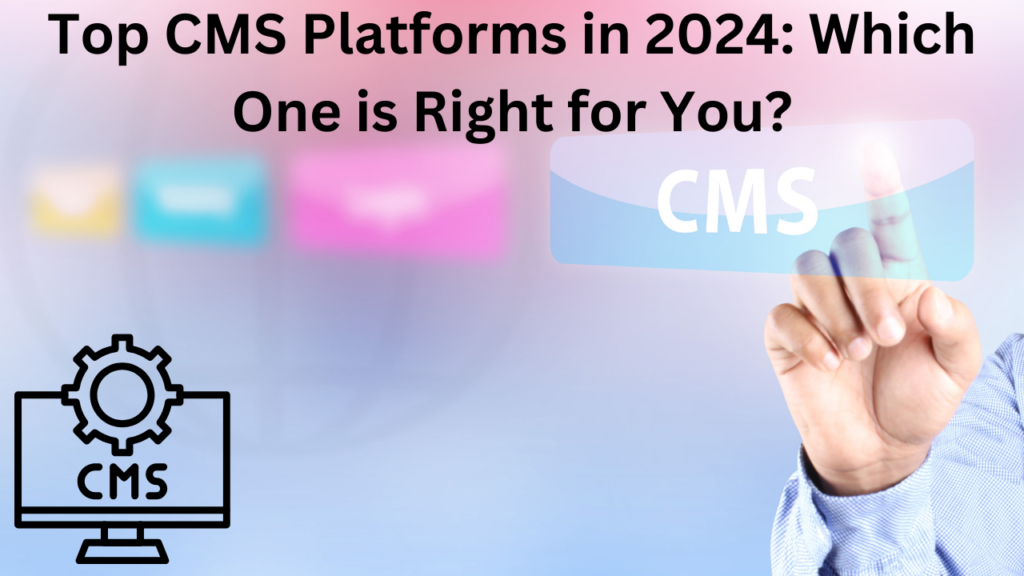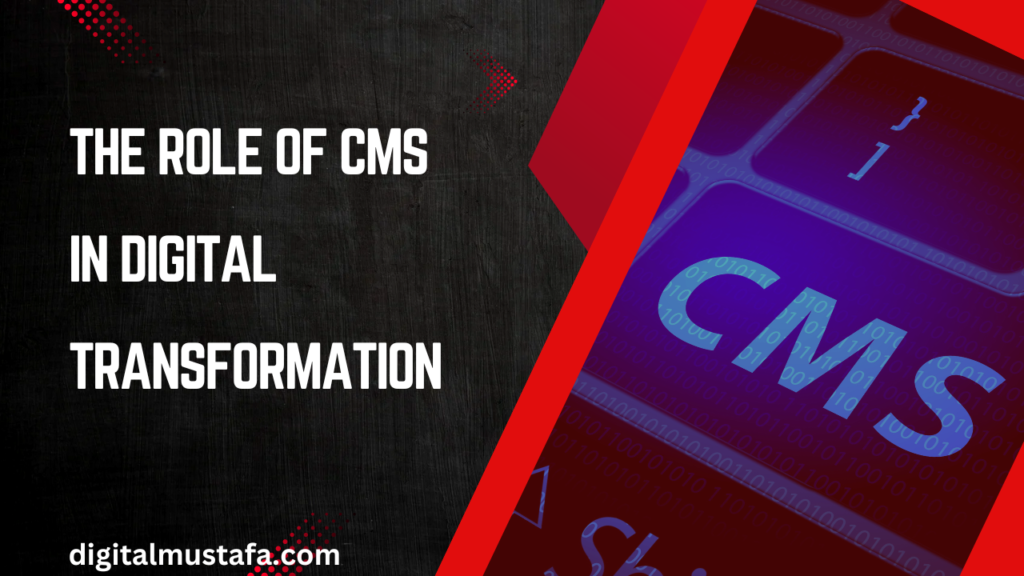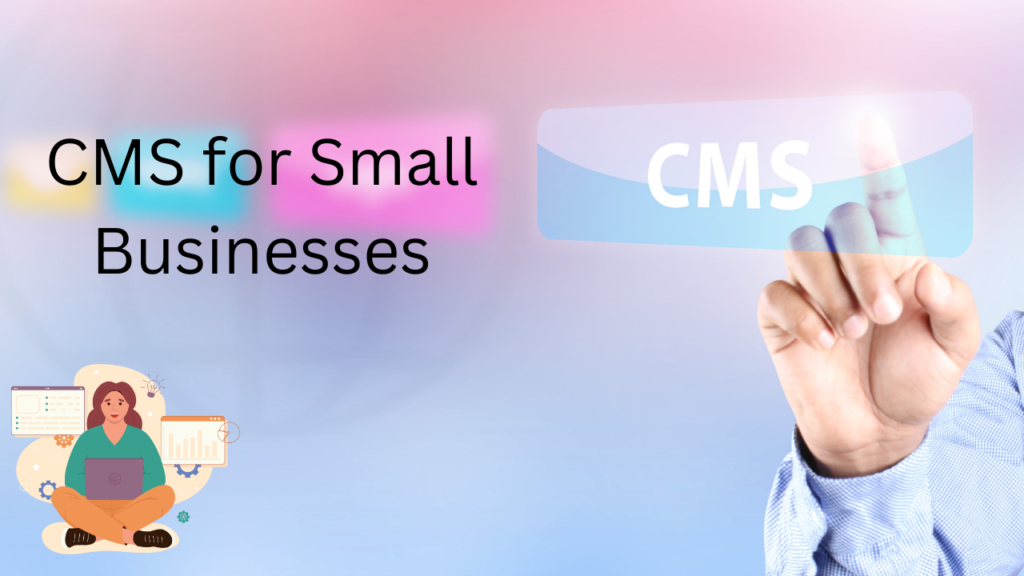
In the digital age, choosing the right Content Management System (CMS) can make or break your website. Whether you’re running a blog, an e-commerce store, or a corporate site, the right CMS provides the foundation for a seamless, user-friendly, and secure experience. With so many CMS platforms available in 2024, it can be challenging to decide which one is the perfect fit. This guide explores the top CMS platforms in 2024, highlighting their features, use cases, pros, cons, and key statistics to help you make an informed decision.
What is a CMS?
A Content Management System is software that enables users to create, edit, organize, and publish content on the web. Unlike coding a website from scratch, a CMS simplifies the process, often requiring little to no programming knowledge.
Benefits of Using a CMS:
- Ease of Use: Drag-and-drop interfaces, pre-built themes, and plugins.
- Cost-Effective: Many CMS platforms are free or offer affordable plans.
- Scalability: Ideal for small blogs to large enterprise websites.
- SEO-Friendly: Built-in tools and integrations for optimizing search visibility.
- Community Support: Extensive forums, tutorials, and developer support.
Top CMS Platforms in 2024: Comparison Table
Here’s a quick comparison of the top CMS platforms in 2024 based on key metrics.
| CMS Platform | Ideal For | Pricing | Market Share (2024) | Key Feature |
|---|---|---|---|---|
| WordPress | Blogs, SMBs, Enterprises | Free (Basic), Paid Plans ($4–$45/month) | ~43% | Extensive plugin ecosystem |
| Wix | Small Businesses, Portfolios | $14–$49/month | ~4% | Drag-and-drop editor |
| Shopify | E-commerce Stores | $29–$299/month | ~3% | Built-in e-commerce tools |
| Joomla | Advanced Customization | Free (Hosting extra) | ~2% | Multilingual support |
| Drupal | Enterprises, Complex Sites | Free (Hosting extra) | ~1.5% | Robust security features |
| Squarespace | Creatives, Designers | $16–$54/month | ~3% | Beautiful design templates |
1. WordPress: The King of CMS Platforms
Why Choose WordPress?
WordPress continues to dominate the CMS space with a staggering 43% market share in 2024. It is an open-source platform, meaning it’s free to use, highly customizable, and supported by a vast community.
Key Features:
- Plugins and Themes: Over 60,000 plugins and thousands of themes to customize functionality and design.
- SEO-Friendly: Built-in tools like Yoast SEO and RankMath.
- Scalability: Powers everything from personal blogs to Fortune 500 websites.
- Ease of Use: A beginner-friendly interface with extensive documentation.
Pros:
- Highly flexible and extendable.
- Strong community support.
- Ideal for both beginners and developers.
Cons:
- Requires regular updates for security.
- Can become bloated with excessive plugins.
“WordPress is by far the most popular CMS in the world, powering over 43% of all websites globally.” – W3Techs Report, 2024
2. Wix: Drag-and-Drop Simplicity
Why Choose Wix?
If you’re looking for a user-friendly CMS with no coding required, Wix is an excellent choice. Its intuitive drag-and-drop builder appeals to small businesses, freelancers, and non-tech-savvy users.
Key Features:
- AI Website Builder: Automatically designs a site based on user inputs.
- Integrated Apps: Includes tools for email marketing, e-commerce, and analytics.
- Hosting Included: Fully hosted platform, so no additional hosting costs.
Pros:
- Quick and easy setup.
- Great for non-technical users.
- Mobile optimization built-in.
Cons:
- Limited customization for advanced developers.
- Less suitable for large, complex websites.
3. Shopify: E-commerce Powerhouse
Why Choose Shopify?
Shopify is the go-to platform for building and managing e-commerce stores. With an e-commerce market share of 3%, it’s designed specifically for online retailers.
Key Features:
- Payment Gateways: Supports over 100 payment gateways.
- Customizable Themes: Includes pre-designed themes tailored for online stores.
- Apps and Integrations: Enhance functionality with marketing, inventory, and analytics apps.
Pros:
- Excellent customer support.
- Secure and reliable hosting.
- Optimized for mobile shopping.
Cons:
- Monthly fees can add up for large stores.
- Limited flexibility compared to open-source platforms.
4. Joomla: Customization for Experts
Why Choose Joomla?
Joomla is a versatile, open-source CMS that balances flexibility with power. It’s often favored by developers who want more control than WordPress offers.
Key Features:
- User Management: Advanced user access controls and permissions.
- Multilingual Support: Built-in translation tools.
- Extensibility: Thousands of extensions for added functionality.
Pros:
- Robust for complex sites.
- Free to use.
- Great multilingual capabilities.
Cons:
- Steeper learning curve.
- Smaller community than WordPress.
5. Drupal: Enterprise-Level Security
Why Choose Drupal?
Known for its robust security features, Drupal is a top choice for government websites, universities, and large enterprises.
Key Features:
- Scalability: Handles high-traffic websites efficiently.
- Advanced Customization: Allows intricate designs and workflows.
- Security: Regular updates and advanced protection against vulnerabilities.
Pros:
- Extremely secure.
- Highly customizable.
- Ideal for complex and large websites.
Cons:
- Requires technical expertise.
- Slower development process for beginners.
Key Statistics: CMS Usage in 2024
- Over 75 million websites are built using WordPress.
- 2 million stores rely on Shopify for e-commerce.
- Wix has over 200 million registered users globally.
- Joomla and Drupal, while smaller in market share, are preferred for complex and high-security projects.
Which CMS is Right for You?
Choosing the best CMS depends on your specific needs, budget, and technical expertise. Here’s a quick guide:
| Requirement | Recommended CMS |
|---|---|
| Blogging | WordPress |
| Small Business Website | Wix or Squarespace |
| E-commerce | Shopify |
| Enterprise-Level Security | Drupal |
| Multilingual Site | Joomla |
| Portfolio or Creative Site | Squarespace |
Conclusion
In 2024, the CMS landscape offers a variety of options tailored to different needs. Whether you’re a solo entrepreneur, a small business owner, or managing a large enterprise, there’s a CMS that fits your goals. WordPress leads the pack with its flexibility and widespread use, but platforms like Wix, Shopify, Joomla, and Drupal cater to niche audiences with unique strengths.
Evaluate your requirements, budget, and technical expertise to choose the best CMS platform for your website in 2024.

